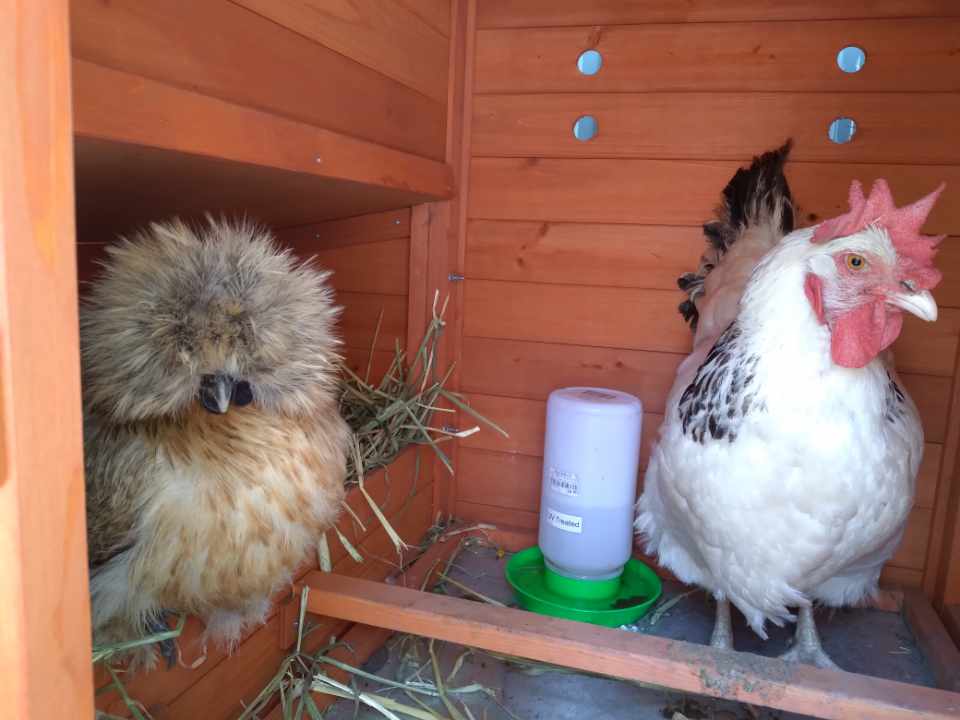
It’s enough to make Lassie jump for joy!
Here at Mercy Community, five-year-old Castiel is proving man’s best friend really is a dog – while helping kids in residential care live happier lives.
A crossbreed of Chihuahua, Shih Tzu, and Maltese, he’s a popular member of the family at our home in Brassall, Ipswich, and is always on hand for a cuddle or a game of fetch.
Castiel (aka Cass) is part of a groundbreaking new program involving animals in out-of-home care settings, which seeks to encourage positive outcomes in well-being, behaviour, and psychology.
Mercy Community’s Senior Residential Care Worker, Jarred Newman, said Cass originally belonged to one of the children’s mothers.
“When she passed away, he moved to the Brassall home to live with Tom,” he said.
“He was a little stressed when he first moved in, but he’s now the boss of the house.
“He’s a very loyal dog and will always wait patiently by the door to greet Tom when he hears him coming home.
“It’s lovely to see him jumping up and down and running around in circles, and Tom enjoys it too.”
Cass sleeps on Tom’s bed every night and brings a special energy to the house that everyone benefits from.
“All the other children and support workers love having a dog in the program,” said Mr Newman.


Castiel enjoys cuddles in bed and outdoor adventures.
“It really does bring a smile to your face to see him running around the backyard chasing the birds or playing with his toys.”
Cass is not the first animal to be brought into Mercy Community’s Residential Care Program, with fish, guinea pigs, and even two chickens (Pom Pom and Penny) among the other special guests.
The initiative is backed by extensive research which reveals the socialising and humanising role animals play in the lives of children, particularly those who have experienced trauma and are placed in out-of-home care settings.
One report examined the use of dogs within a youth ‘residential treatment centre’, and found young people often used the dog as their confidant, engaging in and testing the experience of debriefing and sharing experiences with a ‘truly’ confidential being.

This action of learning to trust and sharing personal thoughts and past experiences is a crucial aspect of repairing attachment styles and engaging in trauma experience recovery.
Research in this area also references a link between providing the opportunity to recover and, in some cases, to develop new understanding and the ability to connect healthily and appropriately.
Mercy Community Regional Director, Melissa Harvie, said growing up with pets was a normalised and familiar experience for children and young people in Australian society.
“It is widely acknowledged that children and young people in out-of-home care can have reduced access to normal childhood experiences,” she said.
“Finding ways to support them to experience normality is key and often helps them to develop positive and resilient personal identities.
“We have seen excellent outcomes in terms of well-being and behaviour as a result of having animals in our residential care homes.
“The young people get along better and share responsibilities for looking after the animals.
“We’ve also seen leadership skills come out, and the teams really love the cohesion these animals create.
“Dogs like Castiel are rare in residential settings, but for Tom, who has bonded to him, we can see the difference he is making, and of course everyone else loves him too.”
*Names have been changed to protect the privacy of the people we support.
Did you know...
The connection between animals and humans dates back to our earliest human records, such as animal mythology and cave paintings of bison and horse by Paleolithic humans.
The use of animals in a therapeutic nature was first recorded in 1792 in the treatment of the mentally ill in England.
This has continued through history with increasing frequency, which now generates large and highly popularised research around the positive impacts of animals on health and behaviour.
Several studies have produced findings that indicate human interactions with pets improves physical health, such as reduced blood pressure and intense healing after major health issues such as heart attacks.
Others have found that pet owners have higher self-esteem, more positive moods, more ambition, greater satisfaction, and lower levels of loneliness.
These findings have been displayed with a wide range of animals, including patting dogs and cats, watching fish in an aquarium and stroking snakes.
Current research has displayed a significant link between caring for animals and juvenile offenders and at-risk young people displaying an increased empathy towards both the animals and other people.
It is also well known that the presence of animals can inspire humour and improve morale of depressed children.
The overarching approach of all interventions within Mercy Community Family and Young People services is to provide children, young people and families the opportunity to engage in evidence-based trauma recovery, build and develop the needed developmental and social milestones and prepare young people and families to their highest capacity so they can excel in their future.



